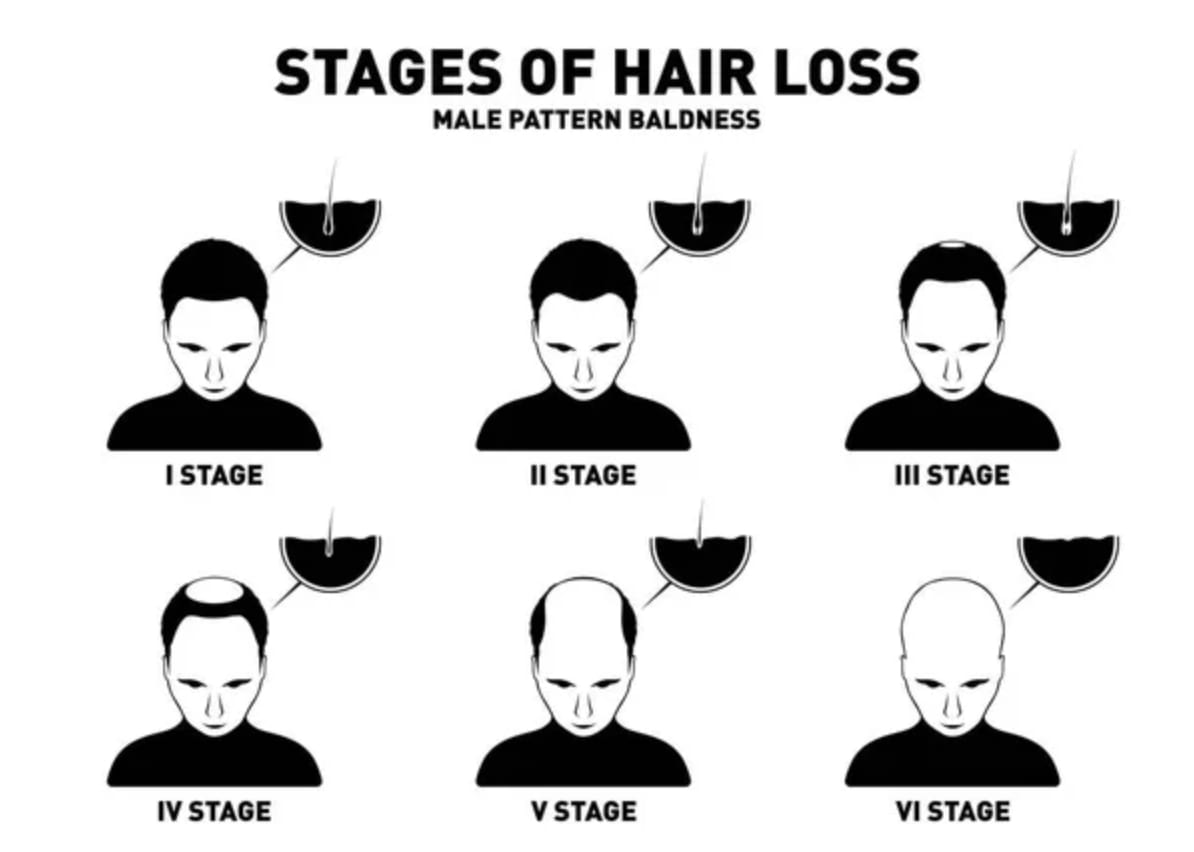Blitz News Digest
Stay updated with the latest trends and insights.
Hair Today, Gone Tomorrow: The Curious Case of Hair Loss
Discover the surprising secrets behind hair loss and uncover solutions to keep your luscious locks. Don't miss out on this hair-raising journey!
Understanding the Science Behind Hair Loss: Causes and Solutions
Understanding the science behind hair loss involves exploring both genetic and environmental factors that contribute to this common condition. There are several causes of hair loss, ranging from hormonal changes to autoimmune disorders, and even lifestyle choices. For instance, androgenetic alopecia, commonly known as male or female pattern baldness, is primarily driven by genetics and hormonal influences. Additionally, stress, nutritional deficiencies, and underlying health issues can exacerbate hair loss, leading to an overall decline in hair health.
Fortunately, there are numerous solutions for hair loss that individuals can consider. Treatments may include topical solutions like minoxidil, prescription medications, or even hair transplantation procedures. Moreover, adopting a balanced diet rich in vitamins and minerals, such as biotin and iron, can strengthen hair follicles. It's essential to consult with a healthcare professional to determine the underlying causes and identify the most suitable treatments for hair loss tailored to individual needs.

Top 10 Myths About Hair Loss Debunked
Hair loss is a common concern that affects millions of people worldwide, yet there are many misconceptions surrounding this issue. One of the most prevalent myths is that hair loss is solely inherited from one’s mother. In reality, genetic factors can be inherited from both parents, making it a complex trait influenced by multiple genes. Additionally, it's often believed that stress alone can cause significant hair loss. While high-stress levels can indeed contribute to hair shedding, they are generally not the sole cause of permanent hair loss.
Another significant myth is that frequent shampooing can lead to hair loss. On the contrary, maintaining a clean and healthy scalp is essential for hair growth, and washing your hair regularly does not harm your hair follicles. Many also think that certain hairstyles, like tight ponytails or braids, do not impact hair health. However, these styles can lead to a condition known as traction alopecia, which can cause significant hair loss over time. By debunking these myths, we can foster a better understanding of hair loss and promote healthier hair care practices.
Is Stress Causing Your Hair Loss? Exploring the Connection
Stress is a common issue that many individuals experience, and it can manifest itself in various ways, one of which is through hair loss. When the body is under significant emotional or physical strain, it may enter a state of shock, leading to a condition known as telogen effluvium. During this phase, hair follicles prematurely enter the resting phase, resulting in increased shedding and thinning. Understanding this connection is crucial, as it helps in identifying whether your hair loss may be linked to underlying stress.
In addition to telogen effluvium, other forms of hair loss, such as alopecia areata, can also be triggered by stress. This autoimmune condition causes the immune system to attack hair follicles, potentially leading to patchy bald spots. If you suspect that stress is affecting your hair health, it's essential to explore effective stress management techniques such as mindfulness, exercise, and proper nutrition. By addressing the root cause, you can not only improve your overall well-being but also promote healthier hair growth.